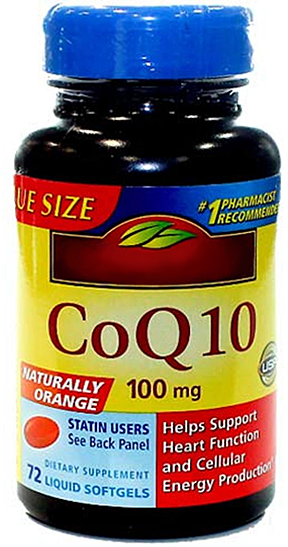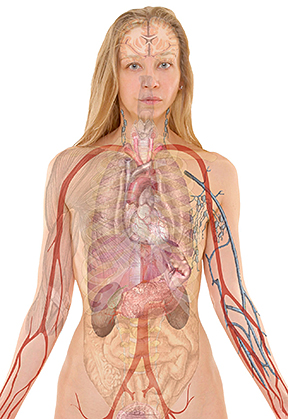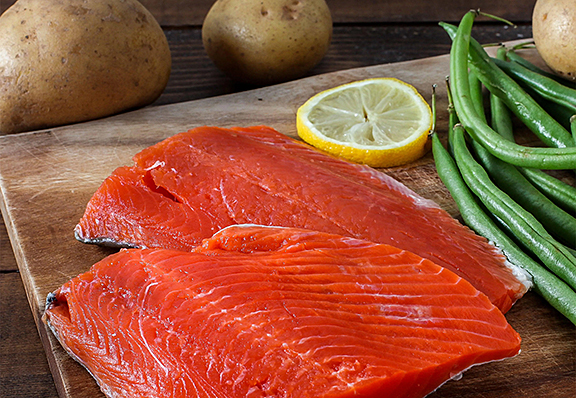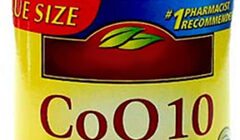CoQ10 and You
It’s time to focus once again on a supplement. When I first heard about CoQ10 I thought it was a scam. After all, what happened to CoQ 1 through 9?  However, as I did more reviews of the basic physiology of the cell, the cell membrane, and the electron transport chain responsible for creating energy in our cells, there it was! CoQ10 is a powerful fat soluble antioxidant that also has anti-inflammatory properties and plays a critical role in energy production. It’s found throughout your body in cell membranes but it’s most abundant in the heart, liver, lungs, kidney, spleen, pancreas and adrenal glands. Apparently, production of CoQ10 peaks around the age of 25 and then begins to decline so that by the age of 65 your body makes only about half the amount.
However, as I did more reviews of the basic physiology of the cell, the cell membrane, and the electron transport chain responsible for creating energy in our cells, there it was! CoQ10 is a powerful fat soluble antioxidant that also has anti-inflammatory properties and plays a critical role in energy production. It’s found throughout your body in cell membranes but it’s most abundant in the heart, liver, lungs, kidney, spleen, pancreas and adrenal glands. Apparently, production of CoQ10 peaks around the age of 25 and then begins to decline so that by the age of 65 your body makes only about half the amount.
CoQ10 exists in two forms ubiquinone and ubiquinol the latter is the reduced form that’s more easily absorbed but both forms are used by the body so don’t sweat that small stuff.
According to a review in the Journal of Pharmacy and Bioallied Science, CoQ10 is essential for the health of virtually all human tissue and organs. In some lists, it is the third most consumed dietary supplement. Vitamin D usually tops these lists and for good reason but that’s another column. CoQ10 protects the cellular membranes from oxidative stress induced by free radicals. Supplementation with 60 mg to 500 mg for 8 to 12 weeks can significantly reduce Tumor Necrosis Factor Alpha, Interleukin 6 and C Reactive Protein, all important markers of inflammation. CoQ10 is involved with cholesterol metabolism, regeneration of Vitamin C and E, maintaining liposomal pH, sulfur metabolism, gene expression and amino acid metabolism.
Cardiac muscle cells have about 5,000 mitochondria per cell. Mitochondria are where CoQ10 concentrates. For further comparison, mitochondria make up 35% of the volume of cardiac tissue and only 3% to 8% of the volume of skeletal muscle tissue. In one study, 102 patients with atrial fibrillation were divided into two groups; one was given CoQ10 supplementation while the other group was given a placebo, after a year 12 people in the placebo group had a fib compared with only three people in the CoQ10 group. Furthermore, a systematic review and meta-analysis of cardiovascular risk factors spanning 884 randomized control trials with 883,627 participants showed decreased all cause mortality in those taking the supplement.
 CoQ10 acts directly on the endothelium lining of our blood vessels and can directly lower your blood pressure. CoQ10 also decreases aldosterone, a hormone that makes you retain salt and water research thereby also lowering blood pressure so there is a direct and indirect effect on blood pressure. Studies suggest CoQ10 can reduce ischemic lesions and improve outcomes after stroke. Interestingly, if you suffer from migraine headaches, CoQ10 may play a preventable role in that condition. A meta-analysis of five studies found CoQ10 was more effective than placebo for migraines.
CoQ10 acts directly on the endothelium lining of our blood vessels and can directly lower your blood pressure. CoQ10 also decreases aldosterone, a hormone that makes you retain salt and water research thereby also lowering blood pressure so there is a direct and indirect effect on blood pressure. Studies suggest CoQ10 can reduce ischemic lesions and improve outcomes after stroke. Interestingly, if you suffer from migraine headaches, CoQ10 may play a preventable role in that condition. A meta-analysis of five studies found CoQ10 was more effective than placebo for migraines.
Now, a major problem with CoQ10 is that it is blocked by statins. These are cholesterol lowering drugs like lipitor, crestor, pravachol, etc. which doctors give out like candy because a number on a sheet of paper is higher than they like. So you lower your cholesterol number (which I assert has little or nothing to do with heart disease but that’s another column) but you also block the beneficial effects of CoQ10. Statins lower CoQ10 because they block the HMG coenzyme reductase enzyme involved in cholesterol production. The problem with blocking this enzyme is that it also blocks production of other important compounds including CoQ10. So, patients taking statins, and that’s most of you, should be supplementing with CoQ10. Of course, check with your doctor or cardiologist but be prepared for a blank look because they don’t bring this up in med school.
The body makes its own CoQ10 but it goes down dramatically as you age. You can get some CoQ10 from food as well, especially wild caught salmon, mackerel, sardine, eggs and organ meat. Good luck with that…I will take a capsule thank you.
Now if you’re going to take CoQ10 as a supplement you have to avoid any CoQ10 that has vegetable oil in it. The unsaturated fat will damage the CoQ10 and it will not work properly.
You can take your health for granted or you can work actively to maintain this incredibly complex bio-electrochemical system we call the body. If you are curious, why not try the supplement and see if it gives you more energy or more vitality. There seems to be no real toxicity at the recommended levels. Of course, check with your health care provider yada yada yada.
Until next month…get well and stay well…
JT BARRY MD











